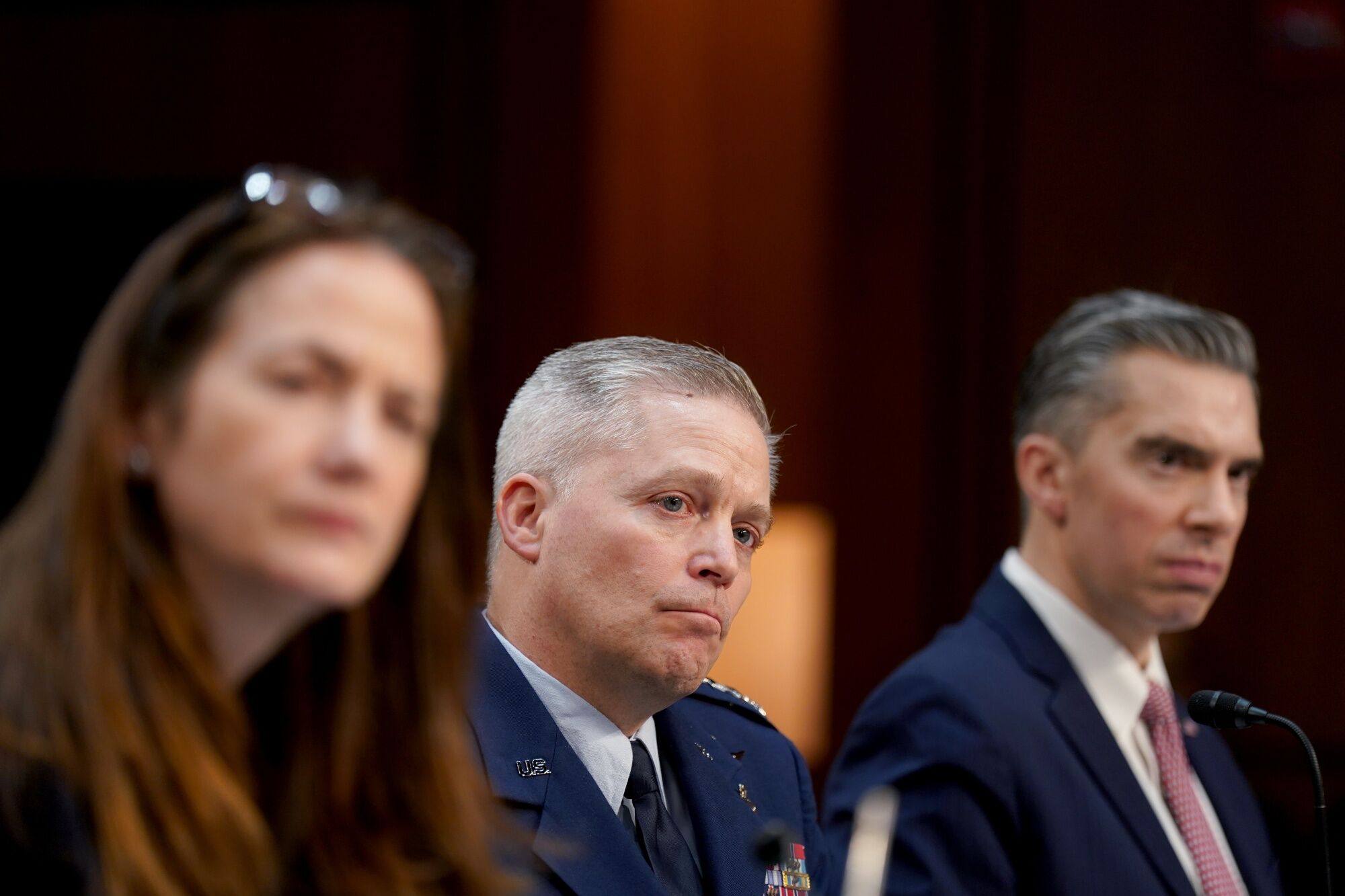“Growing cooperation and willingness to exchange aid in military, economic, political and intelligence matters [among the four countries] enhances their individual capabilities,” said Avril Haines, director of national intelligence, in testimony supporting her office’s Annual Threat Assessment, a summary of current threats to American national security.
The hearing before the Senate Intelligence Committee also brought as witnesses FBI Director Christopher Wray, CIA Director William Burns and National Security Agency Director Timothy Haugh. A closed-door hearing was scheduled to follow the unclassified public portion.
“Russia’s need for support in the context of Ukraine has forced it to grant some long-time concessions to China, North Korea and Iran, with the potential to undermine, among other things, long-held non-proliferation norms,” Haines said, without specifying what technologies she was most concerned about.

Monday’s hearing and the Office of the Director of National Intelligence’s most recent threat assessment underscored the extent to which Washington’s intel community sees economic and technological cooperation between the four countries that Haines identified undermining American stability.
China calls for direct Russia-Ukraine peace talks, offers to ‘build bridges’
China calls for direct Russia-Ukraine peace talks, offers to ‘build bridges’
Wray answered in the affirmative when asked by Florida’s Marco Rubio, the ranking Republican on the committee, whether TikTok would need to follow any Chinese government orders from ByteDance “to put out videos that make Americans fight with each other or spread conspiracy theories and get them at each other’s throats”.
“I would just add that … the different kinds of influence operations you’re describing are extraordinarily difficult to detect, which is part of what makes the national-security concerns represented by TikTok so significant,” Wray said.
Differences over aid for Ukraine, which has been blocked by Republicans in the House of Representatives, connected back to China in Monday’s hearing, with Democrats and some of Monday’s witnesses warning that threats posed by Beijing would intensify if support for Ukraine stayed stalled.
Republican lawmakers have made support for Taiwan and Israel a higher priority, often warning about Beijing’s military build-up in recent years.
Rubio framed the aid as a choice.
“The Chinese hope for [the US] is one of two things: A, we deplete ourselves in Ukraine and/or the Middle East, particularly Ukraine, or B, we can run and then they can go around the world and say, ‘see, America’s weak’,” he said.
China takes swipes at the US but also makes ‘direct appeal’ for cooperation
China takes swipes at the US but also makes ‘direct appeal’ for cooperation
“They have a plan for either outcome, which makes it challenging for us as we decide what to do here.”
Democratic senator Michael Bennet of Colorado pushed back on that assessment.
“You hear people in this building say that the United States of America has to give up on our support for Ukraine in actual conflict with Vladimir Putin and actual conflict with Russia because of the fear that we will not be able to afford some plausible but nevertheless theoretical conflict with China in the future,” Bennet said.

